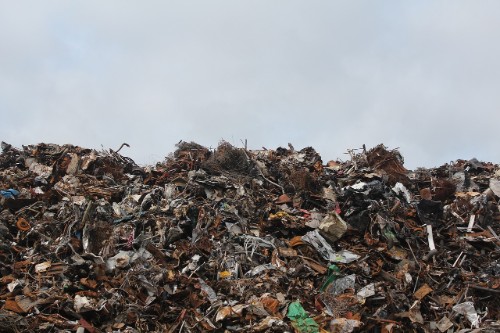The study, published today by Springer Nature, aims to challenge individuals working in the robotics industry and in academia to consider the long-term use of a robotic system and, wherever possible, to repurpose robots to avoid recycling or long-term storage of these systems.
With only 17% of all electronic waste correctly recycled globally, researchers argue it is essential that academia, designers and manufacturers understand the limitations of recycling an electronic product at the end of its life, and instead consider the other options possible to move products towards a circular economy, meeting the UN Sustainable Development Goal 12 (Ensure sustainable consumption and production patterns).
In this research experts from the robotics industry were asked to develop a process to repurpose a robot from one utility to another.
Helen McGloin from Bristol’s School of Engineering Mathematics and Technology explained: “Regardless of being in industry, academia, or the general public, we are all aware of the growing piles of e-waste produced around the globe.
“This research took experts from across the robotics field and ask them to create a new process to repurpose robots. Similarities were seen between this process and established processes for developing new systems and the remanufacturing of used systems.
“However, unique steps within the repurposing process highlighted the value of challenging the expectations of considering robots e-waste at the end of their useful life.”
Currently, robots and robotic systems are not classed as electronic waste (e-waste), however the authors have previously argued that they meet current definitions and will therefore be likely to be included in scope of e-waste in the future. With this classification will come additional scrutiny of the robotics industry and the way it designs and plans end-of-life for electronic robotic products.
As with other electronic products, there are and will be a variety of options for what to do with a robot when it reaches the end of its primary life. Currently, many businesses, research centres and universities ‘hibernate’ their robotic electronic waste – where e-waste is stored for a period without being used.
Helen adds: “Levels of electronic waste are growing annually around the globe, and the introduction of new robotic products in homes, schools and workplaces will only add to this problem in the near future.
“While recycling or storing robots may seem like an easy option to tackle electronic waste, it is so often miss-managed that alternatives must be sought.
“Alternative solutions, such as repurposing, face a variety of challenges before they can become readily implemented. This includes economic and environmental viability, and attitudes of both consumers and businesses towards second hand systems.
“The aim of our research is to assess these challenges and provide creative solutions which can be implemented by the robotics industry as it moves towards circular operating principles.”
This study is part of a wider programme of research led by members of the Ethical & Sustainable Futures team at the Bristol Robotics Laboratory – a joint facility between the University of Bristol and the University of West England.
This paper presents a process for repurposing robots, analysed against other commonly used processes in the design and development of robotic systems. The study uses a Delphi Study methodology – a method regularly used in medical and social sciences, which the authors demonstrate can be successfully implemented for future thinking forecasting within engineering research.
The authors will now investigate further industry attitudes towards e-waste, right to repair, and repurposing, alongside barriers to a circular economy in the robotics industry.
Paper:
‘Consulting an oracle; repurposing robots for the circular economy’ by Helen McGloin, Matthew Studley, Richard Mawle and Alan Winfield presented at TAROS (Towards Autonomous Robotic Systems) conference 2024.
